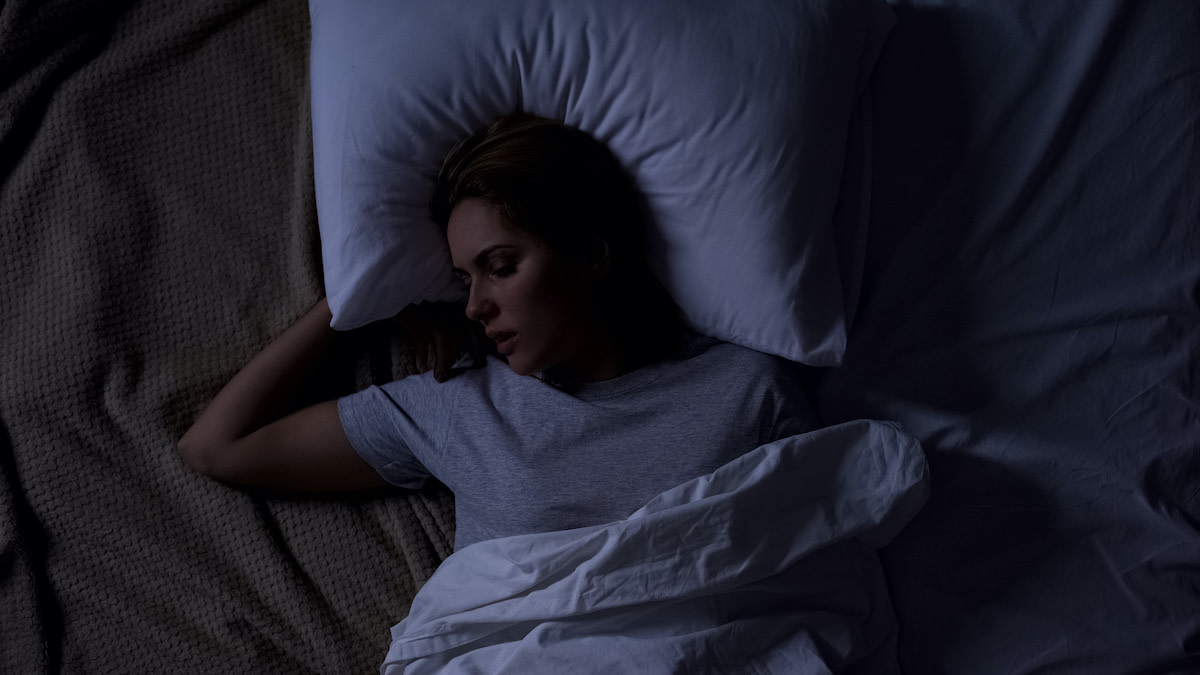Anxiety and Sleep: 7 Tips for Reducing Stress Before Bed
Written by MasterClass
Last updated: Jun 7, 2021 • 3 min read
Anxiety and everyday stressors can affect sleep patterns and cause sleep deprivation.
Learn From the Best
What Is Anxiety?
Anxiety is an emotional condition characterized by extreme worry, fear, or discomfort. Some anxiety is triggered by circumstantial stress, while chronic anxiety disorders may link to long-term mental health issues. Symptoms of anxiety may include increased breathing and heart rate, gastrointestinal distress, panic attacks, and sleep disruption.
How Does Anxiety Affect Sleep?
Chronic anxiety can affect your circadian rhythm and lead to poor sleep quality. Sleep disorders caused by anxiety can include insomnia and sleep apnea. A generalized anxiety disorder brought on by mental health conditions, such as post-traumatic stress disorder (PTSD), may lead to elevated sleep disturbances like nocturnal panic attacks and night terrors. To address anxiety-induced sleep problems, seek advice and treatment options from a medical professional.
7 Tips for Reducing Stress at Bedtime
Maintaining a regular nighttime routine and practicing sleep hygiene habits can lead to a good night’s sleep. Follow these tips to relax before bedtime:
- 1. Develop a bedtime routine. Ritual can lead to better sleep. Try doing the same thing at bedtime every night. This might involve taking a bath, drinking hot tea, or listening to relaxing music. You can train your body to associate bedtime rituals with sleep onset.
- 2. Lower the temperature of your bedroom. A nighttime room temperature of 60 to 67 degrees Fahrenheit is optimal for sleep. A lower room temperature leads to a lower body temperature, which signals to your brain that it’s time to sleep.
- 3. Play relaxing sounds. Try calming your nervous system by playing tranquil sounds such as soft music or nature sounds in the leadup to bedtime, and use white noise to block outside sounds that might disturb your sleep.
- 4. Try aromatherapy. Aromatherapy, the use of aromatic plant extracts and essential oils to promote wellbeing, can lead to feelings of relaxation, which in turn can lead to drowsiness and sleep.
- 5. Practice mindful relaxation techniques. A bedtime ritual of deep breathing exercises and slow exhales can promote progressive muscle relaxation. Add to these breathing techniques by visualizing a relaxing scene. Mindfulness and visualization can eliminate tension while allowing the body to drift from wakefulness into unconsciousness.
- 6. Consider natural sleep aids. Natural sleep aids such as melatonin are available as an over-the-counter medication in most drug stores. Taking melatonin can hasten the onset of sleep without interfering with the natural processes of REM sleep and non-REM sleep.
- 7. Invest in your sleep environment. Create a dark, cool, comfortable space for yourself. You might want to invest in quality sheets, cooling pillows, or even blackout curtains.
5 Potential Effects of Interrupted Sleep
The lack of sleep that comes from interrupted sleep can make it harder for you to function during the day and can have harmful health ramifications in the long term. Common effects of interrupted sleep include:
- 1. Drowsiness: Excessive daytime fatigue, which feels similar to jet lag, can decrease mental acuity and memory retention.
- 2. Immune system impairment: Normal sleep can strengthen your immune system, and disturbed sleep can weaken your body’s ability to fight infection.
- 3. Mood swings: A person overcome by sleepiness may be cranky and irritable, and they may also experience headaches that further sour their mood.
- 4. Microsleep: In addition to general drowsiness, a person running on very little sleep can experience microsleep—very short bursts of unconsciousness that feel like blacking out.
- 5. Medical conditions: Chronic insomnia can exacerbate medical conditions like high blood pressure and diabetes and lead to an increased risk of heart attack and stroke.
Want to Learn More About Catching Those Elusive Zs?
Saw some of the best darn logs of your life with a MasterClass Annual Membership and exclusive instructional videos from Dr. Matthew Walker, the author of Why We Sleep and the founder-director of the Center for Human Sleep Science at the University of California, Berkeley. Between Matthew’s tips for optimal snoozing and info on discovering your body’s ideal rhythms, you’ll be sleeping more deeply in no time.
